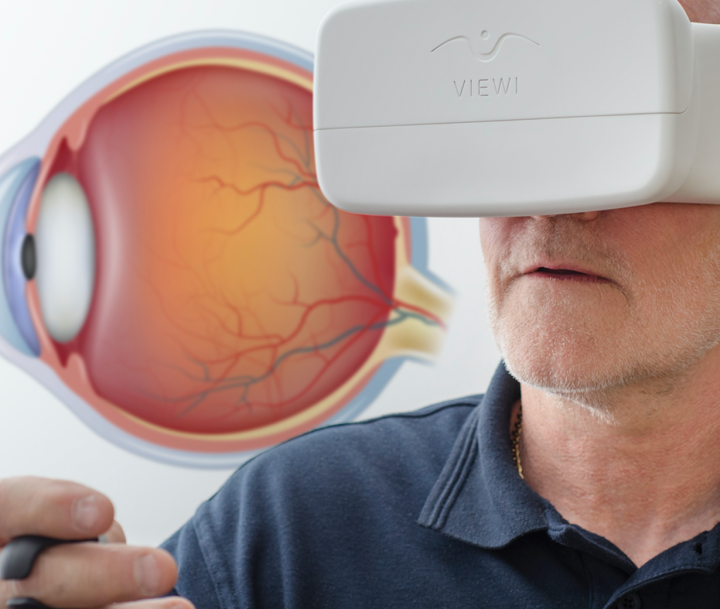
It’s a rather elegant solution to one of the leading causes of blindness across the world. For around $25, this low-cost and user-friendly diagnostic tool could be used for early intervention and treatment, particularly in areas where access to ophthalmologists is limited.
Whereas patients today generally visit a hospital or an eye doctor once a year to undergo a check-up using a visual field analyzer, the Viewi does much of the same without the hassle. As Cambridge Consultants explains, “Flashing lights at varying points of the visual field test sensitivity — with the patient pressing a button each time they see a light. The novel Viewi technology performs the same test but at a fraction of the cost.”
Your smartphone holds the key to this test, as an app reproduces the test that you see in the Viewi headset. Each time you see a flashing dot, simply press a button on a Bluetooth remote, which transmits information back to the headset. The test will take just five minutes per eye, and once you’re finished, you can share your results with a doctor for further analysis (though the Viewi team promises that the results will be easy to understand for the patient, too).
“Loss of vision as a result of open-angle glaucoma cannot be recovered — but early diagnosis and treatment can slow the progression of the disease,” said Simon Karger, head of surgical and interventional products at Cambridge Consultants. “We’ve used our optical expertise — coupled with our algorithm skills — to show how a simple, affordable, fast glaucoma screening test that patients can do at home is entirely feasible. The Viewi system doesn’t aim to replace the current screening and management system — it’s been designed to augment the clinical tests.”
Chris Dainty, a professor at University College London Institute of Ophthalmology and Moorfields Eye Hospital, expressed interest in wider applications of Viewi, noting that it “could provide a valuable early warning system for people at risk of developing glaucoma, as well as patients who need to monitor the effects of the disease on their vision.” Dainty concluded, “It could also make the static perimetry test accessible to more patients in developing countries, where expensive clinical equipment and trained professionals are often in short supply.”

